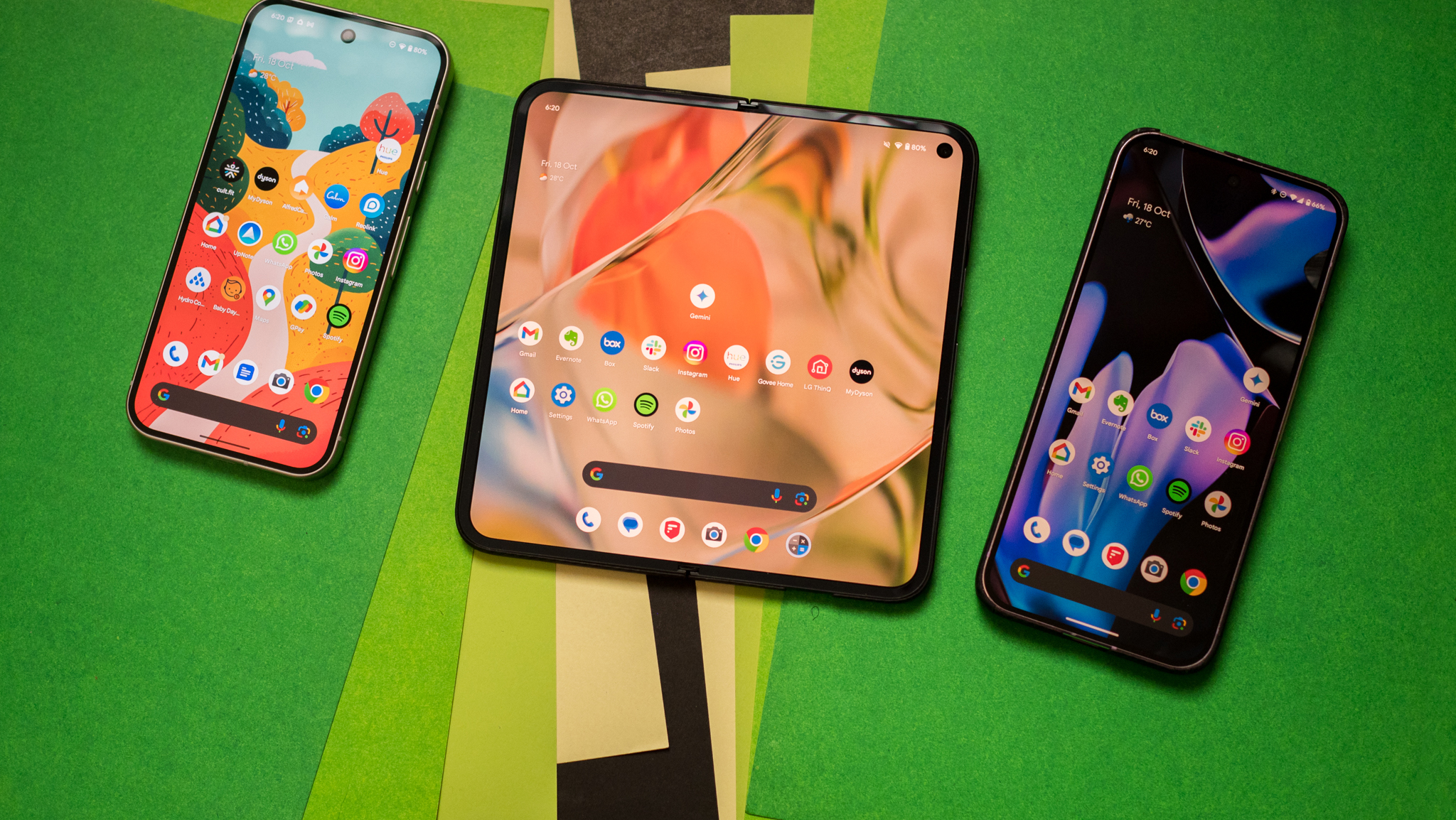OnePlus 7T vs. ASUS ROG Phone 2: Which should you buy?
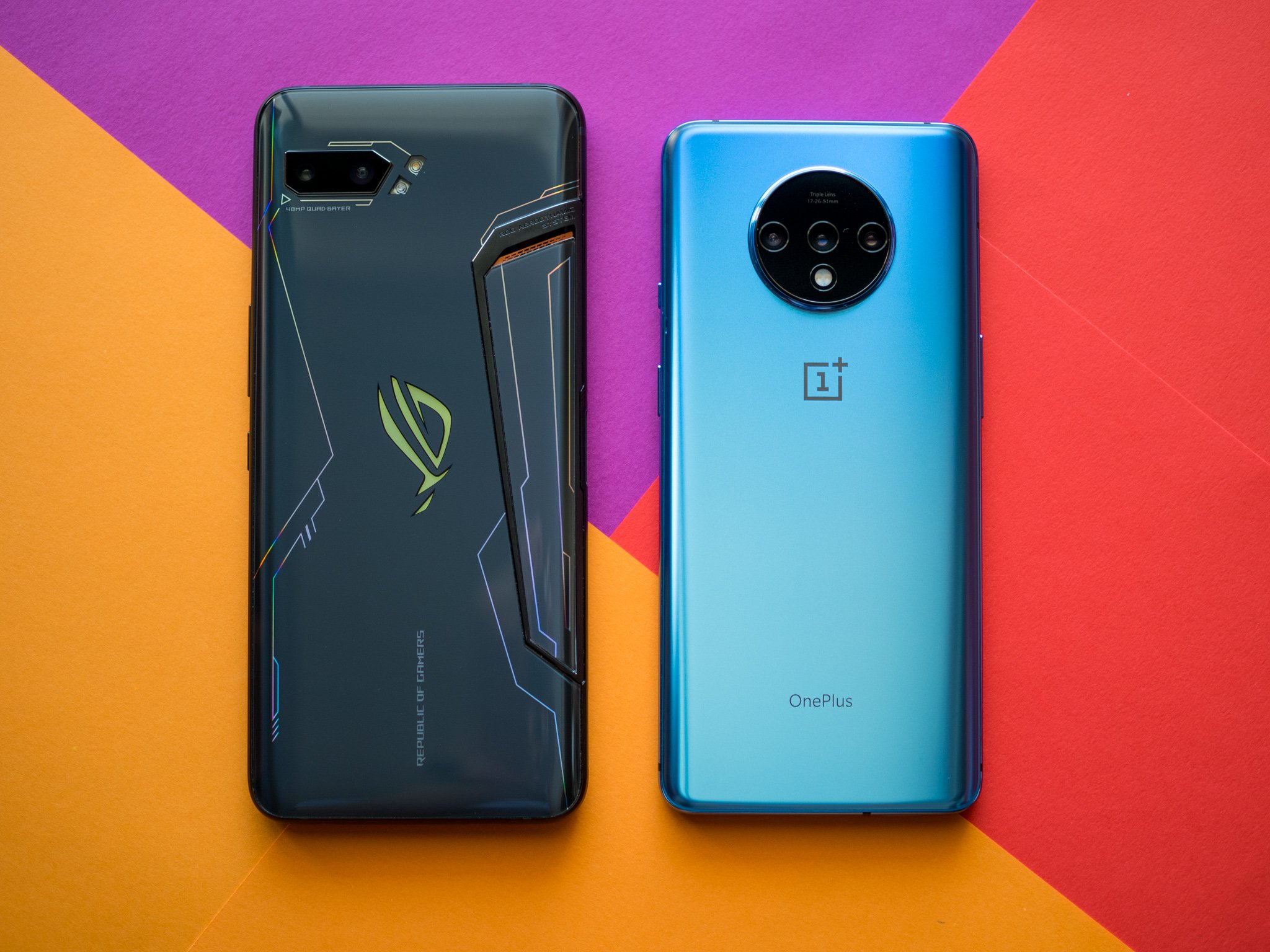
ASUS ROG Phone 2
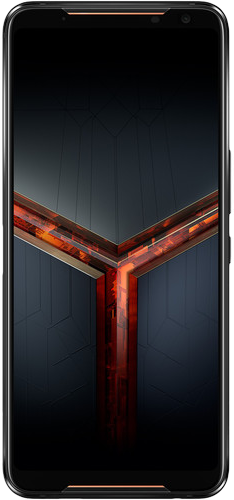
The ROG Phone 2 is the best gaming phone around, and it has a design to match the beefy internal hardware. The Snapdragon 855+ chipset is mated to a three-layer liquid cooling system, the 6,000mAh battery ensures you can game for longer, the 120Hz AMOLED panel is sublime for gaming, and the phone also has shoulder-mounted ultrasonic trigger buttons.
ASUS ROG Phone 2
Beast mode
OnePlus 7T
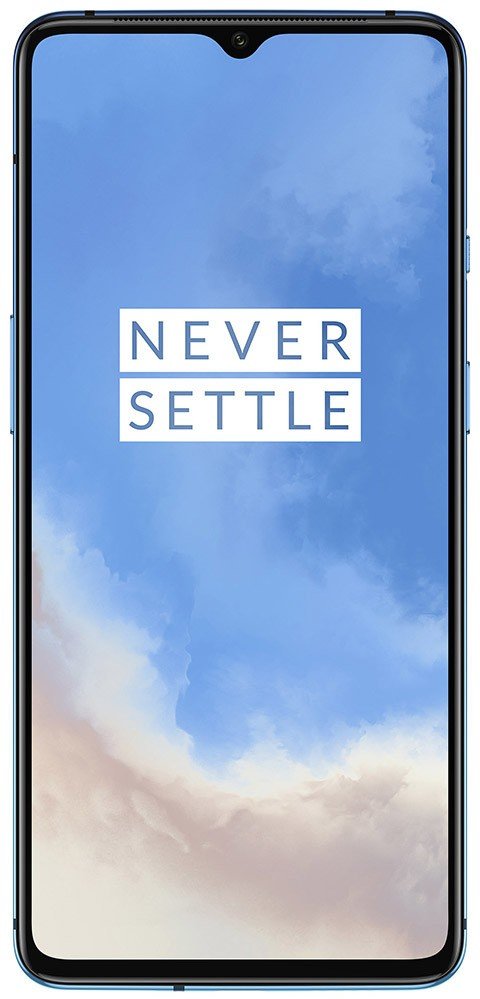
The OnePlus 7T ticks all the right boxes for a value flagship, offering a 90Hz AMOLED display for several hundred dollars less than true flagships. However, its biggest selling point is the software: the phone runs Android 10 out of the box, and OxygenOS 10 is the best software skin you'll find on Android. Combine that with the hardware on offer and the 7T is a solid gaming phone.
OnePlus 7T
Mainstream choice
You don't need a gaming-focused phone to play games on Android. Any phone with Qualcomm's flagship Snapdragon 855+ will play all available titles on the Play Store without any issues. However, if you know you're going to play games like COD Mobile, you might consider a stellar gaming phone.
The ROG Phone 2 is a performance beast like no other
There's no doubt that the OnePlus 7T has stellar hardware. The phone is packing Qualcomm's latest Snapdragon 855+ chipset, has 8GB of LPDDR4X RAM, and 128GB of UFS 3.0 storage. However, it doesn't quite measure up to what ASUS is offering with the ROG Phone 2. Sure, both phones are packing the same silicon, but the difference is in the details. ASUS has dialed things up on its gaming phone, and the result is that the ROG Phone 2 is an absolute monster.
The ROG Phone II easily pulls ahead of the OnePlus 7T when it comes to hardware.
The OnePlus 7T has a 90Hz AMOLED display, and the ROG Phone 2 does one better with a 120Hz AMOLED panel. You'll be able to see the difference in scrolling speed with both phones side-by-side. However, what gives ASUS the edge is the work it put in on the gaming side of things.
ASUS has an exhaustive list of games — numbering over 125 — that run at 120 frames per second (FPS) on its gaming phone, and that's a big achievement. Having a panel with a high refresh rate is one thing, but actually making sure there are a lot of games available to take advantage of that screen is a much bigger ask. In this regard, the ROG Phone II is a much better alternative than the 7T. While OnePlus has worked with studios and publishers to get some games working at 90 FPS on the 7T, the list is nowhere as exhaustive as ASUS.
There's plenty to like in the ROG Phone II even if you don't play a lot of games — the battery life in particular is outstanding.
Then there's the hardware. Although both phones share the same silicon, the ROG Phone 2 has a three-layer liquid cooling setup that does a much better job of dissipating heat from the internal components, allowing the phone to deliver sustained peak performance for longer. ASUS also bundles an AeroActive II accessory with the phone that features a fan designed to siphon heat away from the body of the phone. The accessory attaches to the side-mounted USB-C port, and provides an additional USB-C port and a 3.5mm jack on the side.
Be an expert in 5 minutes
Get the latest news from Android Central, your trusted companion in the world of Android
The ability to sustain peak performance without being throttled absolutely makes a difference when you're playing visually-intensive titles. The ROG Phone 2 also features pressure-sensitive trigger buttons that are a delight to use in battle royale titles. They mimic the feel of a controller without the need for any accessories.
On the subject of accessories, the ROG Phone 2 comes with a robust ecosystem of accessories tailored to deliver the best gaming experience possible. Even if you're not one to play a lot of games, there's a lot to like in the ROG Phone 2. The phone has a massive 6,000mAh battery, and it delivers better battery life than any other flagship that's officially sold in the U.S. It absolutely destroys the 7T in this regard, delivering two days of battery life between charges. You also get 30W wired charging, the same as that on the 7T.
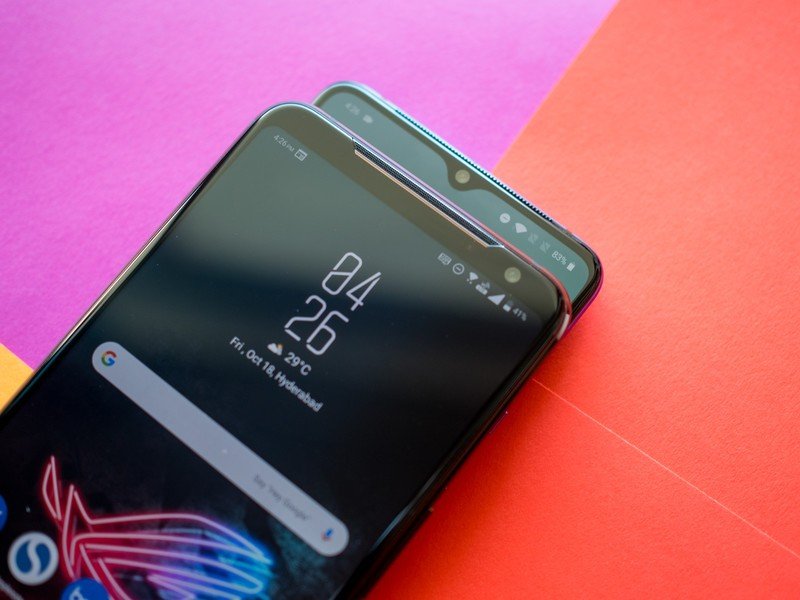
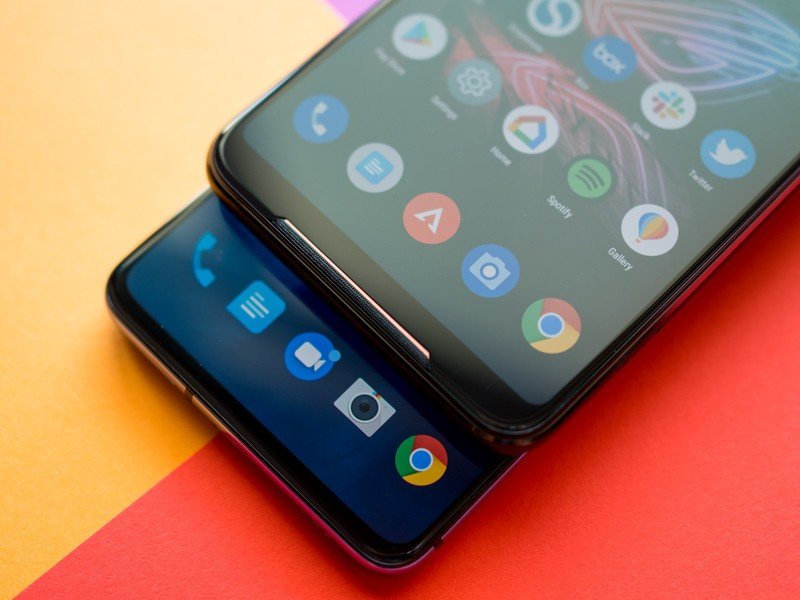
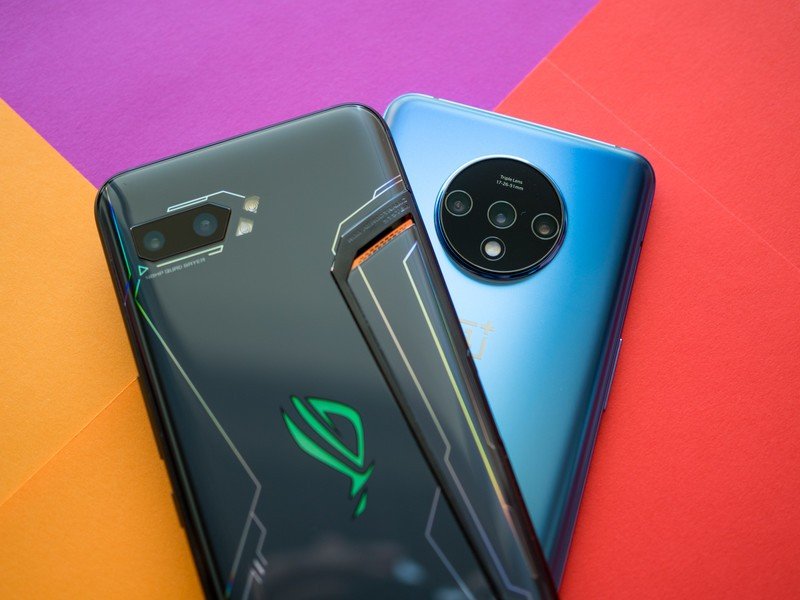
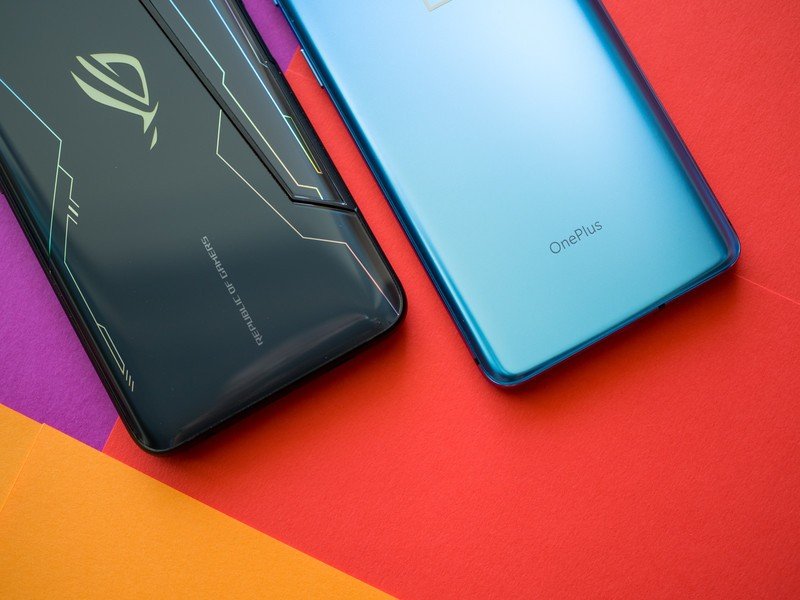
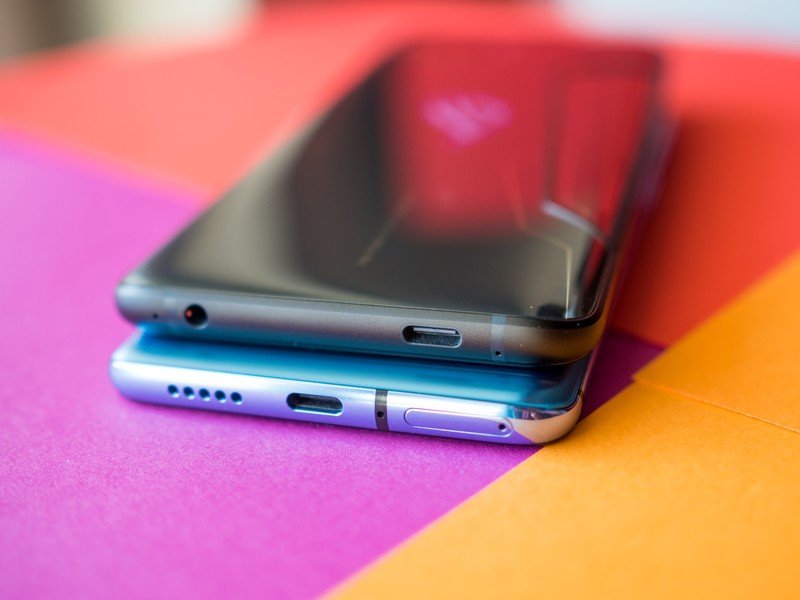
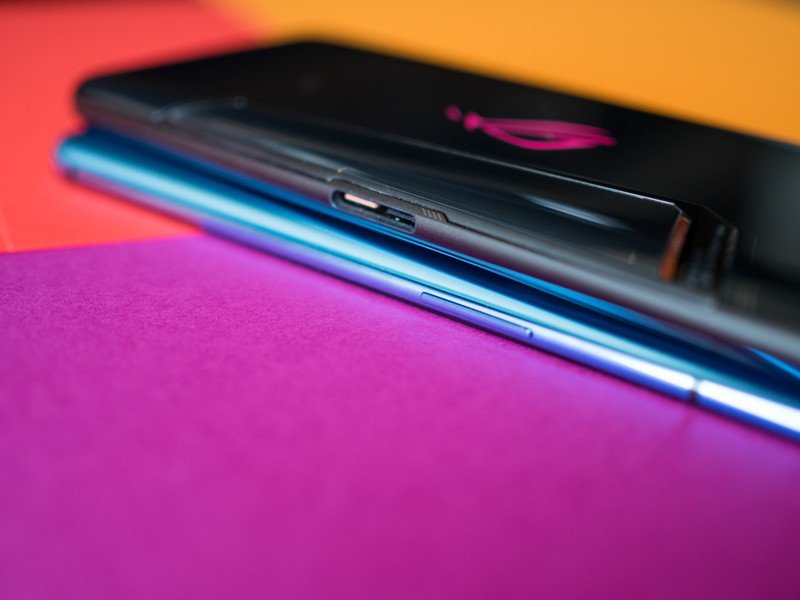
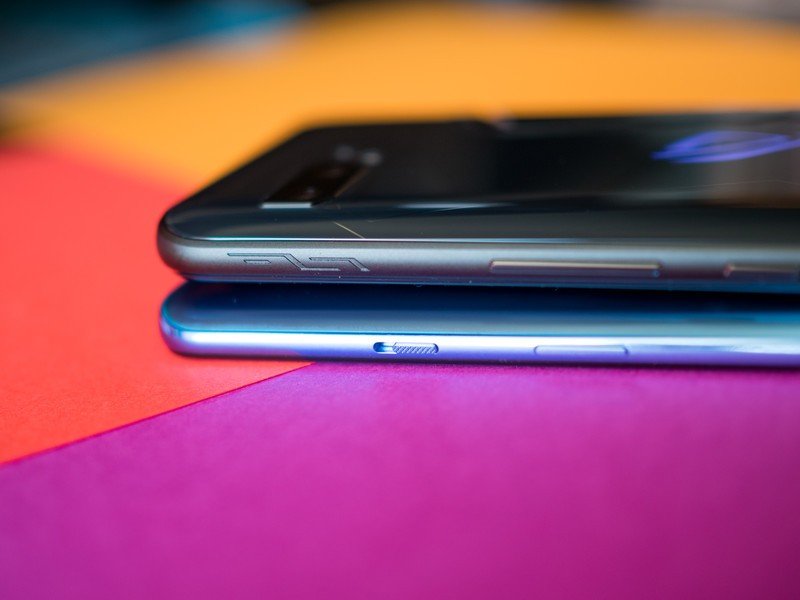
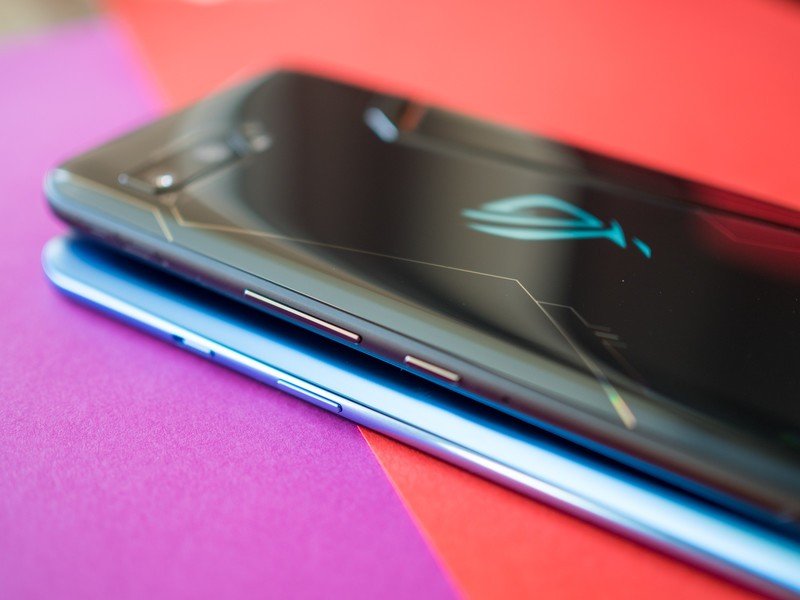
Both phones couldn't be more apart on the design front. ASUS is targeting a particular niche with the ROG Phone 2, and as such it has an aggressive design with etched lines at the back and RGB lighting. The 7T has a more minimal design that stands out in its own way — the camera housing in particular looks great — but of the two, you're more likely to notice ASUS' offering.
The 7T has minimal bezels and a tiny waterdrop cutout, but ASUS went with wide bezels to accommodate front stereo speakers. As a result, the ROG Phone 2 ends up being taller than the 7T, and it is significantly heavier because of the huge battery. Both phones also have stereo sound, but the ROG Phone 2 has louder speakers and both are mounted at the front. The 7T has the primary speaker at the bottom, so you don't get the same booming sound.
The ROG Phone 2 has two USB-C ports, with a secondary port on the side that lets you plug in when you're gaming. There's also a 3.5mm jack, and four Wi-Fi antenna around the body. The 3.5mm jack gives it a leg up over the 7T, with OnePlus ditching the analog port last year.
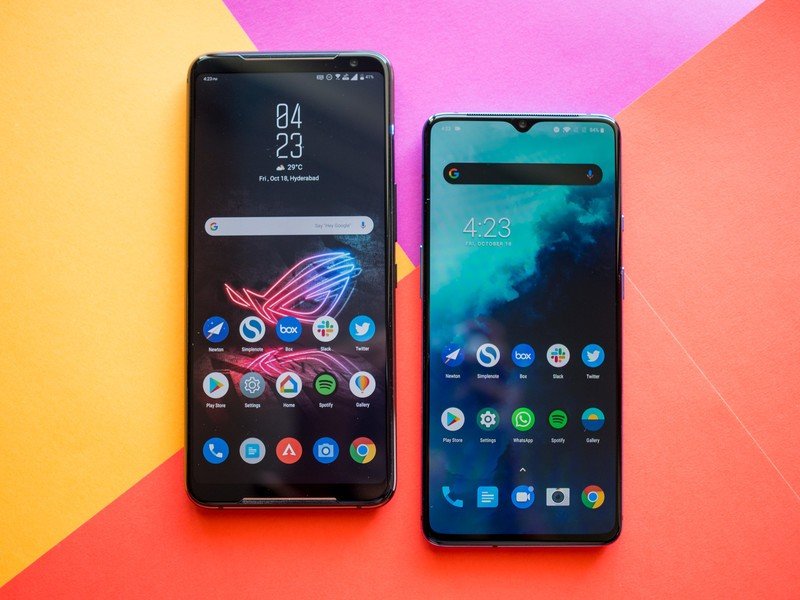
| Category | OnePlus 7T | ASUS ROG Phone 2 |
|---|---|---|
| Operating system | Android 10OxygenOS 10 | Android 9 PieZenUI |
| Display | 6.55-inch 90Hz Fluid AMOLED2400x1080 (20:9)HDR10+Gorilla Glass 6 | 6.59-inch 120Hz AMOLED2340x1080 (19.5:9)HDR10Gorilla Glass 6 |
| Chipset | Snapdragon 855+1 x 2.96GHz Kryo 4853 x 2.42GHz Kryo 4854 x 1.80GHz Kryo 485Adreno 6407nm | Snapdragon 855+1 x 2.96GHz Kryo 4853 x 2.42GHz Kryo 4854 x 1.80GHz Kryo 485Adreno 6407nm |
| RAM | 8GB | 8GB/12GB |
| Storage | 128GB/256GB | 128GB/256GB/512GB/1TB |
| MicroSD slot | No | No |
| Rear camera 1 | 48MP, f/1.6OIS, EIS4K at 60fps | 48MP, f/1.8EIS4K at 60fps |
| Rear camera 2 | 12MP, f/2.2OIS, 2x zoom | 13MP, f/2.4Wide-angle lens |
| Rear camera 3 | 16MP, f/2.2Wide-angle lens117-degree field-of-view | No |
| Front camera | 16MP, f/2.0Sony IMX471 | 24MP, f/2.2Panorama selfie |
| Connectivity | Wi-Fi ac 2x2 MIMO, Bluetooth 5.0AptX HD, NFC, A-GPS | Wi-Fi ac 2x2 MIMO, Bluetooth 5.0AptX HD, NFC, A-GPS |
| Audio | USB-CStereo speakers | USB-CStereo speakers |
| Battery | 3800mAhNon-removable | 6000mAhNon-removable |
| Charging | USB-C 3.130W | USB-C 3.130W |
| Water resistance | No | No |
| Security | In-display fingerprint (optical) | In-display fingerprint (optical) |
| Dimensions | 160.9 x 74.4 x 8.1mm190g | 171 x 77.6 x 9.5mm240g |
| Colors | Glacier Blue, Frost Silver | Matte Black, Glossy Black |
When it comes to the software side of things, OnePlus is firmly in the lead. The 7T comes with Android 10 out of the box, and OnePlus has done a magnificent job over the last two years when it comes to rolling out updates.
OnePlus is obviously in the lead when it comes to software, but ASUS is also offering a clean ZenUI skin.
To its credit, ASUS offers a clean ZenUI build that's devoid of the usual game-centric customizations, and the interface is identical to what you'd find on an Android One phone. However, there's still no Android 10, and while it is possible the update will be rolling out before the end of the year, ASUS isn't on the same level as OnePlus when it comes to updates.
OnePlus also has a lead on the camera side of things, with the 7T featuring an additional zoom lens. Both phones use the same Sony IMX586 imaging sensor, and the resultant image quality is largely identical. There are a few low-light scenarios where OnePlus pulls marginally ahead, but overall you're not going to find a lot of difference in the final image quality.
It all comes down to what you want from a phone
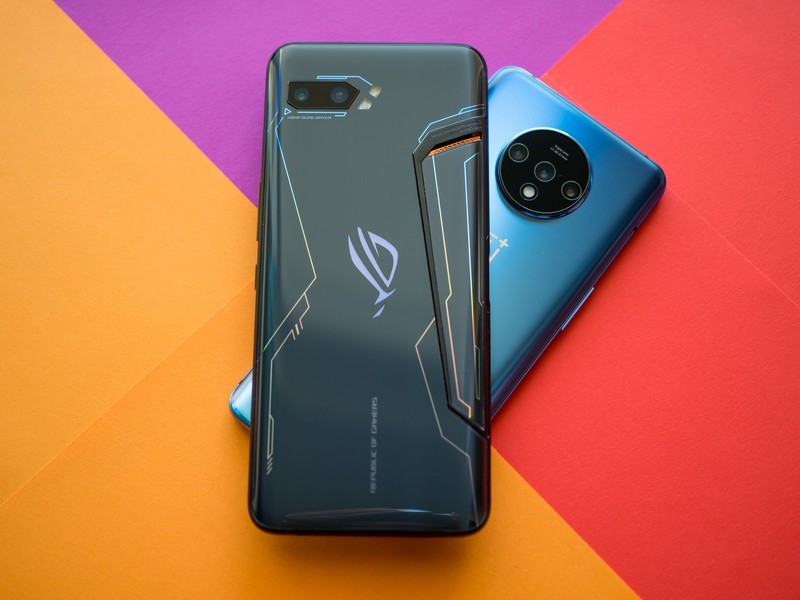
Make no mistake here: the OnePlus 7T is a stellar choice at $600, and you get the same Snapdragon 855+ chipset as the ROG Phone 2. It is a safe choice if you want a phone that can play the latest games at maxed-out settings while still delivering great features in other areas. The camera with its three lenses is more versatile, OxygenOS is a delight to use, and you get fast updates.
The OnePlus 7T is the safe bet here, but if you want something that stands out, go for the ROG Phone II.
But if you're in the market for a device that stands out, the ROG Phone 2 is the obvious choice. The hardware on offer combined with the aggressive design at the back makes it a standout gaming phone in 2019. You also get a 3.5mm jack and a clean software skin that doesn't have any bloatware. But the only option on sale in the U.S. is the 12GB/512GB variant, and that retails for $900 — $300 more than the 7T.
If you're reading this from India, it's a little easier to pick between the two options. The ROG Phone 2 is available with 8GB of RAM and 128GB of storage for ₹37,999 ($530), which is what the 7T also costs in the market. At that price, the ROG Phone II is a no-brainer. Sure, it doesn't have the latest version of Android yet, but you're getting more value, much better battery life, a screen with a higher refresh rate, and a design that is instantly distinguishable from the rest of the pack.

The ultimate gaming phone.
If you want the best gaming phone that money can buy today, look no further than the ROG Phone 2. The design isn't for everyone, but you get a bleeding-edge 120Hz AMOLED screen, three-layer liquid cooling, Snapdragon 855+ chipset, and a monstrous 6000mAh battery that lasts two days. It also has better compatibility with games, and there's RGB lighting.

Solid hardware backed by quick updates.
The OnePlus 7T is a solid choice if you're in the market for a phone with the latest hardware and a 90Hz screen. It also has outstanding software in the form of OxygenOS, a versatile camera, and quick updates. If you're looking for value above all else, the 7T is a stellar choice.

Harish Jonnalagadda is Android Central's Senior Editor overseeing mobile coverage. In his current role, he leads the site's coverage of Chinese phone brands, networking products, and AV gear. He has been testing phones for over a decade, and has extensive experience in mobile hardware and the global semiconductor industry. Contact him on Twitter at @chunkynerd.
